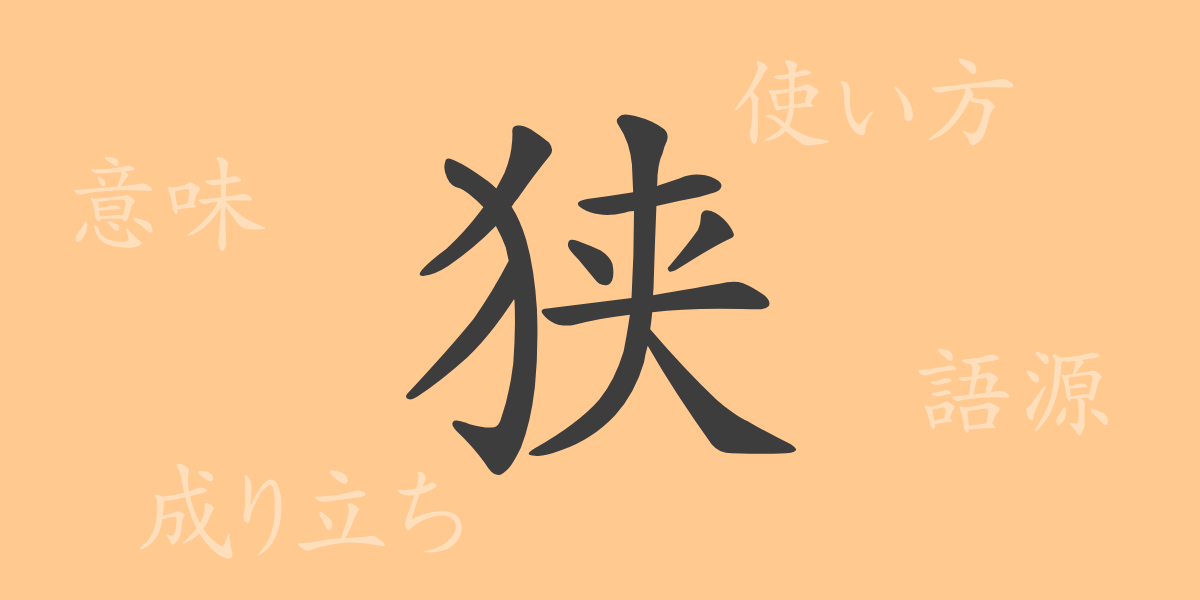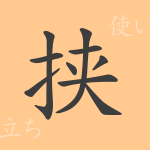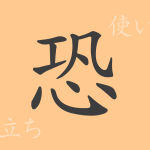One of the fascinating aspects of the Japanese language is the depth of meaning embedded in each kanji character. The kanji “狭(きょう)” is commonly used in daily life, but opportunities to explore its origins and diverse applications in detail are surprisingly rare. In this article, we delve into the charm of “狭(きょう),” from its etymology to idioms and proverbs.
Origin of 狭(きょう)
The kanji “狭(きょう)” originates from ancient China, during a time when hunting was prevalent. It is believed to have been formed by combining “狝(せん),” which depicts hunting with dogs, with “夹(きょう),” which means to pinch or to be narrow. The combination of these two elements gives birth to “狭(きょう),” signifying narrowness.
Meanings and Uses of 狭(きょう)
The kanji “狭(きょう)” denotes limited width or narrowness. It applies not only to physical spaces but also metaphorically, as in phrases like “視野が狭い(しやがせまい)” (having a narrow perspective) or “心が狭い(こころがせまい)” (being narrow-minded).
Readings, Stroke Count, and Radical of 狭(きょう)
The kanji “狭(きょう)” has specific readings and structural characteristics in the Japanese language.
- Readings: The on-yomi (音読み) reading is “キョウ(きょう),” while the kun-yomi (訓読み) readings include “せま.い(せまい),” “せば.める(せばめる),” “せば.まる(せばまる),” and “さ.”
- Stroke count: “狭(きょう)” has a total of 17 strokes.
- Radical: The radical is 犬(けん), meaning dog.
Idioms, Proverbs, and Phrases Using 狭(きょう)
There are numerous idioms, proverbs, and phrases that include “狭(きょう),” each adding depth to the language.
- 狭量(きょうりょう): Narrow-mindedness; having a limited capacity to accept others.
- 狭心症(きょうしんしょう): A type of heart disease characterized by chest pain.
- 手狭(てぜま): Cramped or small space, often referring to a living space.
- 狭義(きょうぎ): The narrow or limited meaning of a term or concept.
- 狭き門(せまきもん): A difficult path to success or selection, symbolizing a challenging situation or place.
Summary of 狭(きょう)
The kanji “狭(きょう)” is an intriguing character that carries the weight of history in its form and sound. While frequently used in everyday life, its etymology, idioms, and proverbs reveal deeper lessons and cultural insights. Through this exploration, we hope readers gain a richer understanding of the expressive power and background of “狭(きょう).”

























